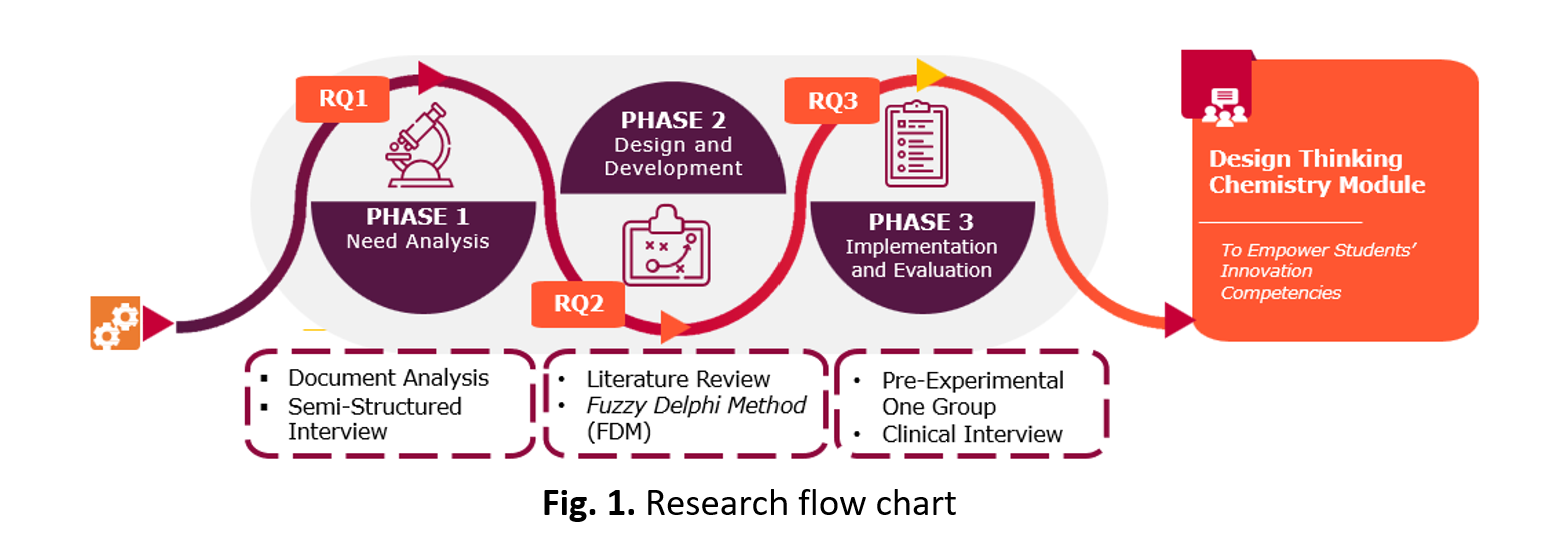Design and Development Research (DDR) Approach in Designing Design Thinking Chemistry Module to Empower Students' Innovation Competencies
DOI:
https://doi.org/10.37934/araset.44.1.5568Keywords:
Design thinking, Design and development research (DDR), Innovation competencies, Teachers' pedagogy, Chemistry educationAbstract
Design and evaluation processes to provide an empirical basis for producing instructional and non-instructional products, tools, and new or improved development models. This method uses various methods, including qualitative and quantitative techniques, and thoroughly examines the literature. The design and development of this chemistry module using design thinking to empower students' innovation competencies are described in this article. The main challenge for the teaching implementation process that is capable of mastering the skills of generating new ideas and solving problems in the real world is preparing teaching materials, consuming time, and putting pressure on the teacher. Teachers need more support resources to translate the expected teaching practices. This effort aims to generate a new perspective in education, especially chemistry education, in developing student innovation competence in secondary schools in Malaysia. Therefore, this study aims to discuss the design and development research (DDR) approach used to develop a design thinking chemistry module using a DDR approach. The researcher will go through three study phases and use several different research approaches in each phase. In the first phase, the researcher investigated the teachers' needs in their pedagogy used in teaching and students' innovation competencies. The second phase is the design and development phase, involving the consensus of twelve experts in various fields, such as chemistry/science, technology, engineering, and mathematics (STEM), curriculum development, module construction experts, and research and innovation planning experts. Consequently, the final phase is implementation and evaluation, focusing on determining the module's effectiveness in teaching and learning. Expert consensus is the primary input in developing modules in Malaysian chemistry education. Malaysian education needs to bring a different educational paradigm and teaching strategy, which includes the impact of teacher pedagogy through design thinking in the future. The conclusion of this article proposes a conceptual framework for the research to contribute to the advancement of design thinking and chemistry education.
Downloads





























